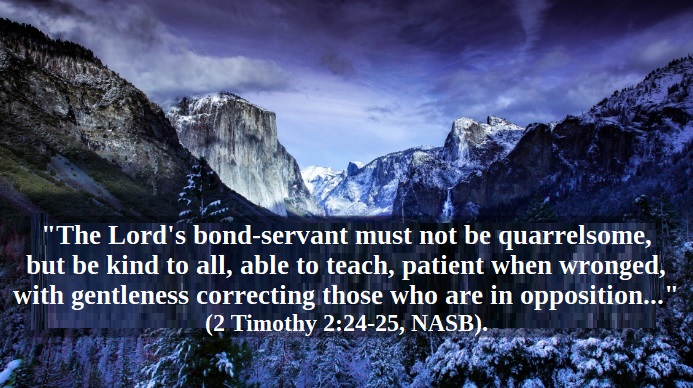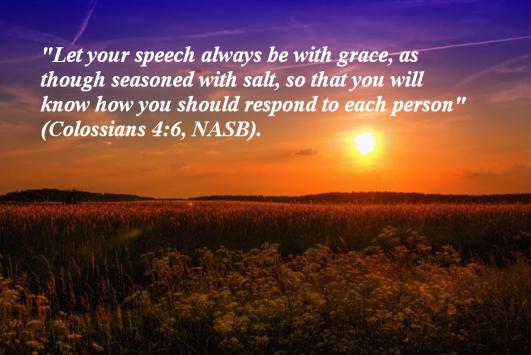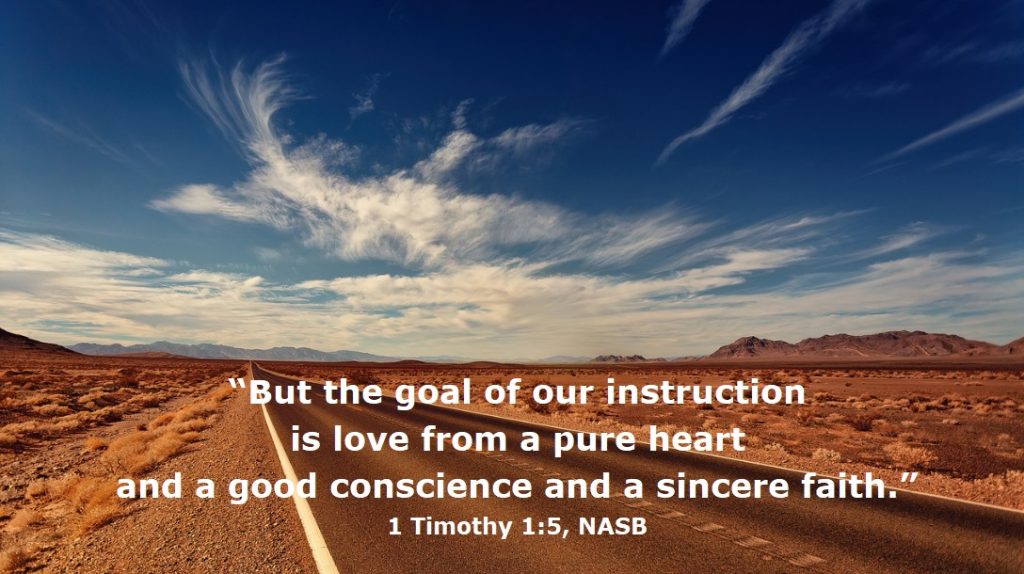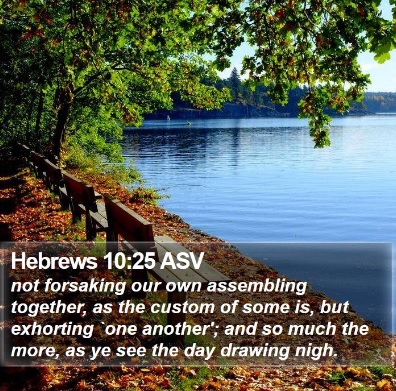“Go therefore and make disciples of all the nations…teaching them to observe all that I commanded you; and lo, I am with you always, even to the end of the age” (Matthew 28:19-20, NASB).
——————–
Contents:
1) Greet, but Don’t Greet (Kyle Pope)
2) Remember Your Own Forgiveness (Joe R. Price)
——————–

-1-
Greet, but Don’t Greet
Kyle Pope
It was recently pointed out to me that two commands found in the New Testament might easily be misunderstood as contradictory. Let’s take a look at these and consider what the Holy Spirit is teaching in each passage.
The first, comes in the Sermon on the Mount as Jesus elaborates on His command to “love your enemies” (Matt. 5:44). As He urges His disciples to exemplify the Father’s willingness to do good to both “the just and the unjust” (5:45), He asks parallel questions—“For if you love those who love you, what reward have you?” (5:46a) and “if you greet your brethren only, what do you do more than others?”(5:47a). He explains that “even the tax collectors” (the personification of wickedness) do these things (5:46b, 47b). The clear charge here is that if one is a follower of Christ he must not merely “greet” his brethren, but even his enemies.
The second command comes in the brief second epistle of the apostle John. After warning that a failure to abide in the “doctrine of Christ” puts one in a position in which he or she does “not have God” (2 John 9), the apostle then addresses how the Christian must treat those who have transgressed the “doctrine of Christ.” He commands,
If anyone comes to you and does not bring this doctrine, do not receive him into your house nor greet him; for he who greets him shares in his evil deeds. (10-11)
How is it that we must “greet” even our enemies, but we share in the “evil deeds” of another person if we “greet” the one who transgresses the “doctrine of Christ”?
To understand this we must first consider what is meant by the term “greet.” Although most translations simply put this “greets him” (NKJV, ESV) or “gives him a greeting” (NASB), there is a little more that can be gleaned from the Greek text. The Holy Spirit led John to use the Greek word chairō (χαίρω). Thayer defines it, “1) to rejoice, be glad; 2) to rejoice exceedingly; 3) to be well, thrive; 4) in salutations, hail!” The key concept is joy. 42 times the King James Version translates it “rejoice.” So why is it translated “greet”? In ancient Greek it was quite common to use the imperative form of this word as an initial greeting or when saying goodbye to someone. It would be like saying, “rejoice!” New Testament writers show examples of this in both the beginnings (Jas. 1:1) and endings of epistles (2 Cor. 13:11).
In 2 John there are actually three words that make up the phrase. The pronoun for “him,” the verb meaning “to speak,” and the word chairō. In verse 10 and 11 it literally describes “saying to him ‘rejoice.’” John is not teaching that Christians are forbidden from saying “hello” to someone. He is teaching that we must never communicate to someone who has stepped outside of the teaching of Christ that they can “rejoice” in such a condition. Alexander Campbell in his Living Oracles translation put this “wishes him success” (LO).
We can compare this to the similar Hebrew custom that continues to the present. To say “hello” or “goodbye” one might say shalom (שָׁלוֹם) that literally means “peace.” Jesus likely alludes to this when He sends out the Twelve to spread the gospel. He tells them, “If the household is worthy, let your peace come upon it. But if it is not worthy, let your peace return to you” (Matt. 10:13). These Jewish disciples quite likely went out teaching with the greeting “shalōm!” —“peace!” If their message was received, this appeal for the well-being of those who were taught would remain. If the people rejected it, Jesus says to “let your peace return to you”—in other words, do not wish them “peace” when they are not in a condition in which they can be at peace. That would actually encourage them in their rebellion to God’s word. In the time of Jeremiah the Lord rebuked those who said to His rebellious people “‘Peace, peace!’ when there is no peace” (Jer. 6:14; 8:11).
This is the key to understanding how Jesus’ command to “greet” even our enemies and John’s command not to “greet” the transgressor of the “doctrine of Christ” harmonize. In the example of Jesus’ instructions to the Twelve we just considered, just before this He said, “And when you go into a household, greet it” (Matt. 10:12). The word He uses here is not the same word John used, but it is the same word used in the Sermon on the Mount. It is the Greek word aspazomai (ἀσπάζομαι), meaning, “1) to draw to one’s self; 1a) to salute one, greet, bid welcome, wish well to; 1b) to receive joyfully, welcome” (Thayer). Oddly enough, the King James Version translates this word “salute” 42 times. This is what we are to do even to our enemies. Like the Twelve, Christians are to welcome, receive, and attempt to draw to ourselves all people in the name of Christ. This is not a matter of wishing them “joy” or “peace” in their rebellion to God. It is kindness and courtesy, like God shows to “the just and the unjust.” We, like God are to do good to others whether they have done good to us or not (cf. Matt. 5:48). But also like the Twelve, if those whom we have tried to influence reject God’s word—or having received it do not “abide in the doctrine of Christ,” we must never in any way express to them that they can “rejoice” or be at “peace” in such a condition. If we do that we become complicit in their rebellion—we share in their “evil deeds.” Instead, like the Twelve, we must let “our peace” return back to us. We want the best for them. We are not rude or unkind to them. We hope for their change of heart and some future opportunity to correct the error of their ways, but we must never allow them to think that we sanction, approve, and encourage them to remain in rebellion.
This is the distinction in the two commands. There is no contradiction. The Holy Spirit is addressing two different conditions and two responses brought on by these differences.
— Via Faithful Sayings, Volume 25, Issue 18, November 26, 2023
——————–

-2-
Remember Your Own Forgiveness
Joe R. Price
If you have ever paid off a debt you know how liberating it is. To be out from under the pressure of making that monthly payment is a relief, no question about it.
Have you ever been freed from a financial obligation without having to pay off the debt? If so, I suspect you were very thankful for the kindness, generosity and mercy you were shown. At least, you should have been.
This is what happens in a spiritual sense when one is saved from his sins by Christ. By the mercy of God one is released from his debt of sin – a debt beyond his ability to repay. Divine compassion is extended to all through the death of Christ and obtained when the sinner will, in faith, obey the gospel instructions to repent of his sins and be baptized into Christ (Titus 2:11; Acts 2:37-41).
Jesus taught the motive and extent of forgiving those who sin against us in the parable of the unmerciful servant (Matt. 18:21-35). Is there any more tragic view of unmerciful selfishness than the one depicted by the Lord in this parable? The servant who was freed from an enormous debt to his master falls upon his fellow servant and demands payment of a paltry sum by comparison. Unwilling to show the same mercy and forgiveness he had been shown, the man reaped what he had sown. His master placed him under a torment which would last forever.
What is the point? “So my heavenly Father also will do to you if each of you, from his heart, does not forgive his brother his trespasses” (Matt. 18:35).
Why are we unwilling to forgive each other when we have been forgiven a much greater debt? Perhaps because we do not appreciate the value and depth of the forgiveness we have received. Perhaps because we do not love each other as much as we love ourselves. Clearly, one reason is because we fail to love each other the way the Lord loves us (1 Jno. 4:7-11).
Brethren, these things ought not to be so. Forgiveness may not always be easy. But it is always right (Col. 3:12-14). If we forgive we will be forgiven. If not, our sin remains. (Matt. 6:14-15)
— Via The Spirit’s Sword, XII, Number 4, December 28, 2008
——————–
Romans 4:7-8
“BLESSED ARE THOSE WHOSE LAWLESS DEEDS HAVE BEEN FORGIVEN, AND WHOSE SINS HAVE BEEN COVERED. BLESSED IS THE MAN WHOSE SIN THE LORD WILL NOT TAKE INTO ACCOUNT” (NASB).
——————–
The Steps That Lead to Eternal Salvation
1) Hear the gospel — for that is how faith comes (Rom. 10:17; John 20:30-31).
2) Believe in the deity of Jesus Christ, the Son of God (John 8:24; John 3:18).
3) Repent of sins. For every accountable person has sinned (Romans 3:23; Romans 3:10), which causes one to be spiritually dead (Ephesians 2:1) and separated from God (Isaiah 59:1-2; Romans 6:23). Therefore, repentance of sin is necessary (Luke 13:5; Acts 17:30). For whether the sin seems great or small, there will still be the same penalty for either (Matt. 12:36-37; 2 Cor. 5:10) — and even for a lie (Rev. 21:8).
4) Confess faith in Christ (Rom. 10:9-10; Acts 8:36-38).
5) Be baptized in water for the remission of sins (Mark 16:16; Acts 2:38; 22:16; 1 Pet. 3:21). This is the final step that puts one into Christ (Gal. 3:26-27). For from that baptism, one is then raised as a new creature (2 Cor. 5:17), having all sins forgiven and beginning a new life as a Christian (Rom. 6:3-4). For the one being baptized does so “through faith in the working of God” (Col. 2:12). In other words, believing that God will keep His word and forgive after one submits to these necessary steps. And now as a Christian, we then need to…
6) Continue in the faith by living for the Lord; for, if not, salvation can be lost (Matt. 24:13; Heb. 10:36-39; Rev. 2:10; 2 Pet. 2:20-22).
——————–
Tebeau Street
CHURCH OF CHRIST
1402 Tebeau Street, Waycross, GA 31501
Sunday: 9 a.m. Bible Classes and 10 a.m. Worship Service. Congregational Song Service: 5 p.m. for every first Sunday of the month.
Wednesday: 7 p.m. Bible Classes
evangelist/editor: Tom Edwards (912) 281-9917
Tom@ThomasTEdwards.com
https://thomastedwards.com/go/all.htm (This is a link to the older version of the Gospel Observer website, but with bulletins going back to March 4, 1990.)
















